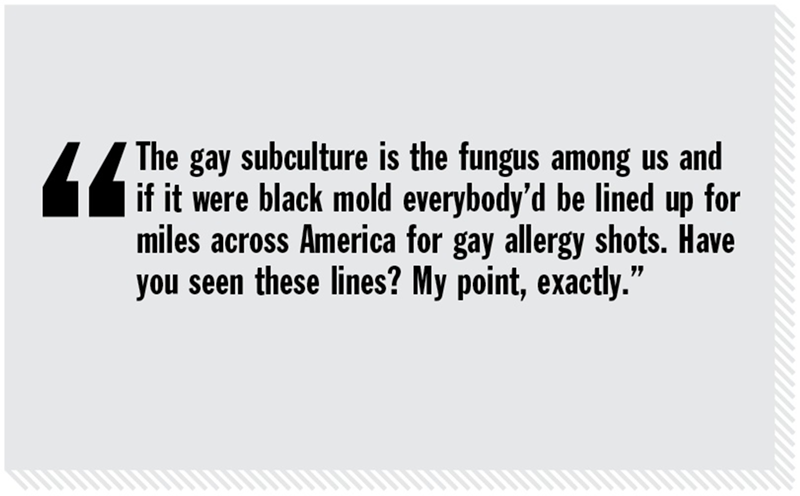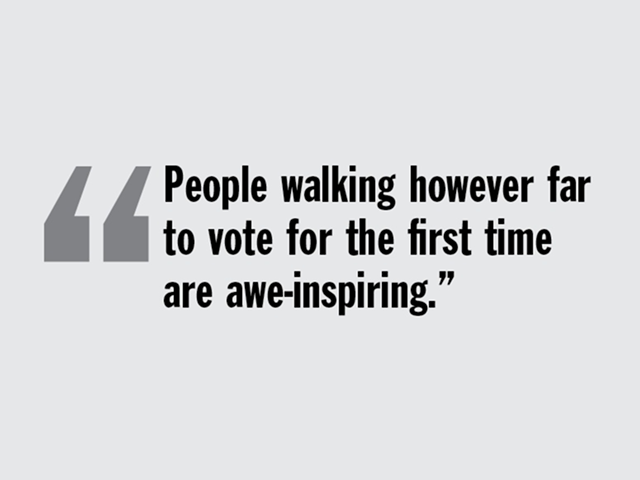The recent Hamilton County Commissioners’ quarter-cent sales tax dust-up that booted Music Hall from the original package deal that would have helped Music Hall and Union Terminal with major repairs is a perfect storm of class, political finger-pointing and entitlement.
Commissioners Greg Hartmann — co-starring as spineless — and Chris Monzel — in a starring role as a tea partyer in Republican’s clothing — voted against the proposed package deal known colloquially as the “icon tax” that would have allocated an estimated $331 million to fix both buildings using a quarter-cent county sales tax hike.
Democrat Todd Portune was the lone “yes” vote.
Monzel, in an end run around what’s important for the arts community in this city and in a clear nod to his own po-dunk relationship with such rarified culture as the symphony and the opera, “adopted” a plan with a striking resemblance to one tea party folks had been pitching hard to Republican commissioners in July during the run up to the Aug. 7 vote.
It worked.
Though the 130-year-old Music Hall needs $100 million in repairs, county voters in November will decide whether to pass the sales tax that will solely raise $170 million of Union Terminal’s estimated $208 million in renovations; it’s a tax that will be levied for five years.
Everybody’s ass out if Monzel’s plan is the one that makes it to the polls. Union Terminal officials, shocked by the cutting of the “icon tax” umbilical cord, must now decide if they will publicly speak out against a plan omitting Music Hall but meant to help their own cause.
It’s biblical, this splitting the baby in half.
Hartmann says he voted against the package tax deal because the county does not have a history of helping Music Hall. Further, Hartmann has said Music Hall is the city’s obligation and responsibility. If that’s so, then only city residents should be allowed to come to Music Hall for concerts and events, and driver’s licenses should be checked at the door by the Music Hall’s team of geriatric docents who are so ferocious that the pit bulls mauling babies and grandmothers from here to Dayton ain’t got nothing on these people.
Of course, Mayor John Cranley was offended by Hartmann’s stance, reminding the commissioner that he’d kept his promise to pledge $10 million over 25 years to Music Hall for maintenance in addition to an already promised $10 million from the city for repairs.
Greg Hartmann smells mighty spineless at this juncture, caving to politics — petty politics, at that — instead of visionary planning.
Music Hall officials caved, too.
Where was their Plan B should the two-pronged tax plan fail?
Why didn’t officials, supporters and fundraisers have at the ready something else that would have protected them against disappointment and ensured their financial needs were firmly met?
I’ll tell you why they were caught unprepared: entitlement.
It’s the same thing that unravels all wealthy, white groups around Cincinnati who assume votes will fall their way, major progress will go off without a hitch or a rankle or a chorus of dissent.
It’s the same thing that befalls Democrats in national politics, too.
Nobody pays much attention to the swing vote.
People operating on good intentions and obsessed with only their needs miss the fact that not everyone will feel the same, especially politicians.
Music Hall folks should have been so far up inside Commissioner Hartmann that they’d have shown up on an X-ray. Everyone knew he was the swing vote, that Portune was going to vote for the deal and Monzel was going to vote against it.
Instead, Music Hall advocates stood about in their smart shoes hoping against hope Hartmann would do the right thing.
And he did.
For conservative, anti-tax wackadoodles who wouldn’t know art and culture if they sat beside them on the streetcar.
Maybe this foray into the deep waters of politics and (outside) money will do the Music Hall folk some good in the long run. Maybe now they’ll see and feel what smaller, independent arts organizations across this city have felt for years and that is the white-hot burn of self-reliance, independent thinking, progressive planning and aggressive, creative fundraising.
If I had my druthers, I’d throw money at Music Hall and find a way to help Union Terminal independent of a sales tax. As it is, the two icons — and they each are that in their own way — stand as pawns in a city vs. county Battle Royale whether politicians and respective support groups want to realize or say it aloud.
Music Hall represents blue-haired finery, air-conditioned opera with subtitles and intermissions; the thrill of sitting in the dark listening to foreign tongues and exquisite strings and symphonic thunderclaps of centuries-dead composers beside God knows who — a major donor, an important doctor, another pedestrian just like you?
Union Terminal has become a moneymaking Swiss Army knife of
a place, beckoning to the working class enthralled by Princess Diana’s shoes and clothes, to families with hyper kids quieted only by the bombast of Imax movies and dusty dinosaurs. It’s also a safe and non-partisan place to hold a political rally, an awards ceremony and large-scale speaking engagements. It sits at the apex of its circular drive like an Art Deco exclamation point, its back turned on old rail yards and our city’s forgotten industrial guts.
I am offended by the two commissioners’ decision to split the two apart in the tax deal because it says to me — besides heralding their individual political posturing — that they do not trust us voters to be able to choose both places, both buildings, both social meanings. These politicians assume us to be like them; they assume we city dwellers do not understand the geography of living inside a city that’s inside a larger county.
But we get it. We know both places are necessary, despite our own class status and recreational needs.
And we will remember next time we vote for county commissioners.
CONTACT KATHY Y. WILSON: [email protected]






